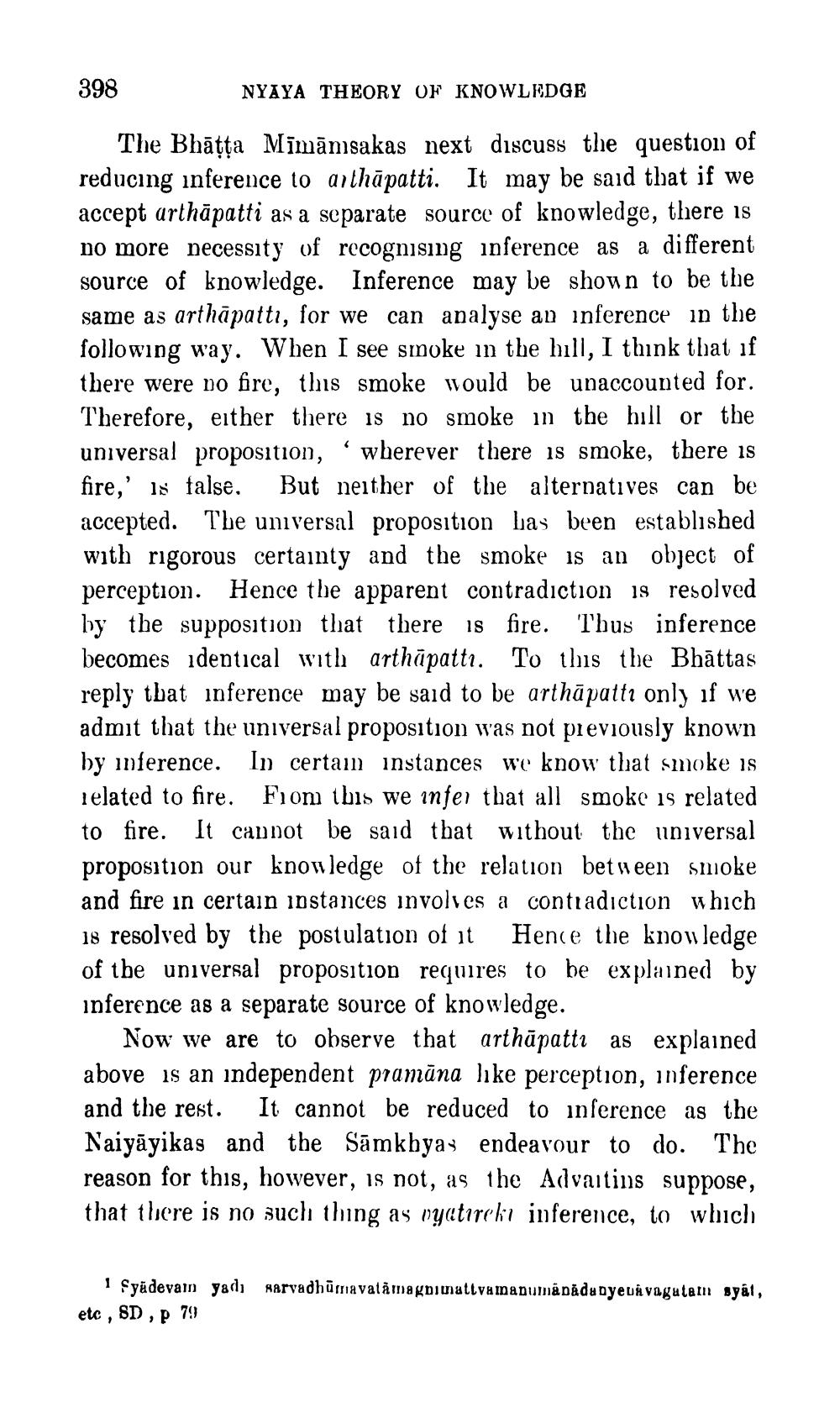________________
398
NYAYA THEORY OF KNOWLEDGE
The Bhāțţa Mimānisakas next discuss the question of reducing inference to arthāpatti. It may be said that if we accept arthāpatti as a separate source of knowledge, there is no more necessity of recognising inference as a different source of knowledge. Inference may be shown to be the same as arthāpattı, for we can analyse an inference in the following way. When I see smoke in the hill, I think that if there were no fire, this smoke would be unaccounted for. Therefore, either there is no smoke in the hill or the universal proposition, 'wherever there is smoke, there is fire,' is false. But neither of the alternatives can be accepted. The universal proposition bas been established with rigorous certainty and the smoke is an object of perception. Hence the apparent contradiction is resolved by the supposition that there is fire. Thus inference becomes identical with arthāpattı. To this the Bhāttas reply that inference may be said to be arthāpattı only if we admit that the universal proposition was not previously known by mference. In certam instances we know that smoke is related to fire. From this we infer that all smoke is related to fire. It cannot be said that without the universal proposition our know ledge of the relation between smoke and fire in certain instances involves a contradiction which 18 resolved by the postulation of it Hence the knowledge of the universal proposition requires to be explained by inference as a separate source of knowledge.
Now we are to observe that arthāpattı as explained above is an independent pramūna like perception, inference and the rest. It cannot be reduced to inserence as the Naiyāyikas and the Sāmkhyas endeavour to do. The reason for this, however, is not, as the Advaitins suppose, that there is no such thing as vyatireki inference, to which
1 Syadevain yadı sarvadhūmavatảmagpiunattvamanumăpădu nyeusvagatan gyál, etc , SD, p 79




